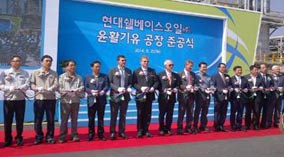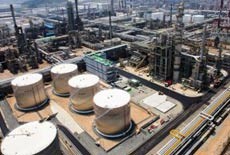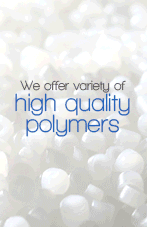
Hyundai and Shell Base Oil Co., a joint venture company formed by Shell and Hyundai Oilbank, have inaugurated a new base oil manufacturing plant in Daesan, South Korea. The plant has the capacity to produce approximately 13,000 barrels per day or 650 kilotonnes of API Group II base oils per year.
Mark Gainsborough, Executive Vice President for Shell Lubricants, said: "As the demand for higher quality lubricants is on the rise in Asia, the region is shifting away from Group I base oils towards increased use of Group II and Group III base oils. This plant contributes significant Group II base oil supply to Shell’s supply chain in the region, helping us grow our premium lubricants business in Asia, especially in China and Northeast Asia."
The plant was built to capture the growing demand for Group II base oils in Asia.

Demand for base oil is projected to grow significantly in the world over the next decades and especially in the Asia Pacific region. The Asia Pacific region is driving global growth in lubricants demand. By 2020 it is estimated the region will represent more than 50% of all demand.
Overall finished lubricants demand is also projected to grow by 10% per annum in China and other Asian countries. The growth is predominantly in higher quality lubricants requiring Group II and Group III base oils for blending.
This is the fourth base oil production plant for Shell in the region, after Pulau Bukom in Singapore, Kaohsiung in Taiwan and Yokkaichi in Japan (a joint venture). Shell base oil production plants in Asia work alongside Shell’s network of 19 blending plants in the region, to deliver Shell finished lubricants. Shell has blending plants in China, Singapore, Thailand, Malaysia, the Philippines, Vietnam, South Korea, Pakistan and India. Shell is also currently building two new blending plants in Asia, one in China and one in Indonesia.
Base oils are the key component of finished lubricants, making up on average of 60-80% of the end product. There are five technical grades of base oil based on the composition of saturates, sulphur and viscosity group I, II, III, IV and V.
The joint venture (60% Hyundai Oil bank, 40% Shell) currently only manufactures base oils. It is located at the existing HDO refinery in Daesan, South Korea. Like crude oil, base-oils are also traded on the open market. Commercial agreements are in place, with Shell taking some of the base oil and using it to create high quality finished lubricants at its blending plants around the region.
When completed this will be the ninth base oil manufacturing plant for Shell globally. Three of Shell’s current base oil manufacturing plants are in Asia: Pulau Bukom in Singapore; Kaohsiung in Taiwan and Yokkaichi in Japan (a joint venture).
Shell has a global network of 50 lubricant blending plants, where base oils are blended with additives to make finished lubricants.
Shell produces finished lubricants for transport (passenger cars, heavy duty vehicles, ships and planes) as well as industry (including power, mining and manufacturing).
(PRA)






















